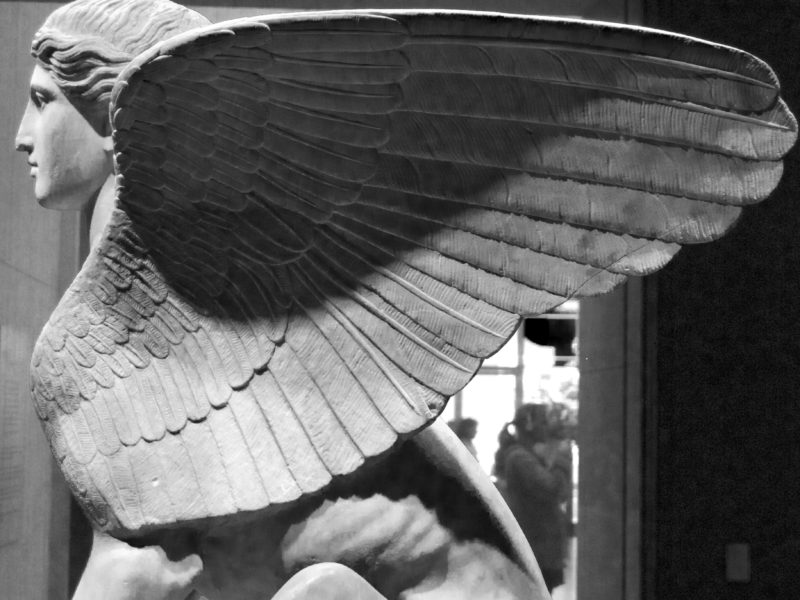
Geflügelte Worte is a term in the German language that refers to aphorisms, bon mots or figures of speech that have made their way into common use. Literally it means something like words with wings. This week I’ll devote time to some rather memorable phrases in the news and commentaries that caught my eye and ear. They might not have wings quite yet, but they fluttered a bit in my brain.
They were all over the map, as is my reading these days. The first of these phrases was found on Daily Kos, the progressive website that has a tendency towards high decibel levels and the use of exclamation marks:
Forget rabbit season and duck season, this is YEATS season; the season of searching out fresh metaphors for ruin when your greatest fears have long been surpassed!

Never mind the hyperbole of “greatest fears long been surpassed.” I’d say our greatest fears are still in front of us. But as it turns out Yeats has been cited more often in the last 18 months than in three decades before combined. And it is one poem that comes up repeatedly – its third line in particular – capturing visions of ruin indeed. 
The poem was published two years after World War I had ended; it was read by many as rather prophetic once fascism rose, more so than as an account of the terrors of the war Europe had just experienced. Opinions were also divided on whether the poem was a call to return to traditional structures and values, or whether it pointed toward the need for revolution. Regardless, it sure manages to instill a sense of ominous threat, of fear, with its hints at the Apocalypse (which is the title of the biblical chapter that predicts the second coming of Christ, also known as the Book of Revelation.)

The poet communicates the feelings; leave it to the scientists to determine the content of our fears. A group of sociologists from Chapman University is currently engaged in a longitudinal study of what it is that Americans are most afraid of. They had of course some assumptions about what fear- and grievance-mongering from above will do to the rest of us, but they surely wove a wide net for possible fears to be caught:
The poster below gives you a current assessment, the article spells out the change that has happened over the last years since they started the survey.

I found the fact that American involvement in war and climate changed ranked equally high particularly stunning. And would never have dreamt that government corruption is high on the list. Which makes me wonder if people interpret the question of “fear” as one of experiencing anxiety or the more colloquial use of “I fear it’s true that….”

As a known worrier-in-chief I can assure you Yeat’s words somehow have more of an impact than those Chapman numbers.
Photographs are from murals at the Groote Kerk in Alkmaar, NL, depicting the day of reckoning. Title image was from a 2012 exhibit of Greek sculpture at the Portland Art Museum.






Steve Tilden
Friderike, I think the lines that are most accurate, and frightening, today are “The best lack all conviction, while the worst are full of passionate intensity.”
Molly Ivins wrote “Stand up and fight, you fools” ten years ago. Words from the distant, and recent past still resonate.
Mike
Hi, Friderike– Thanks as usual for these insights. I think you meant to say the poem was published two years after the end of World War I. Best, Mike
Sara Lee
Informative, illuminating (literally and figuratively) post. Thank you.